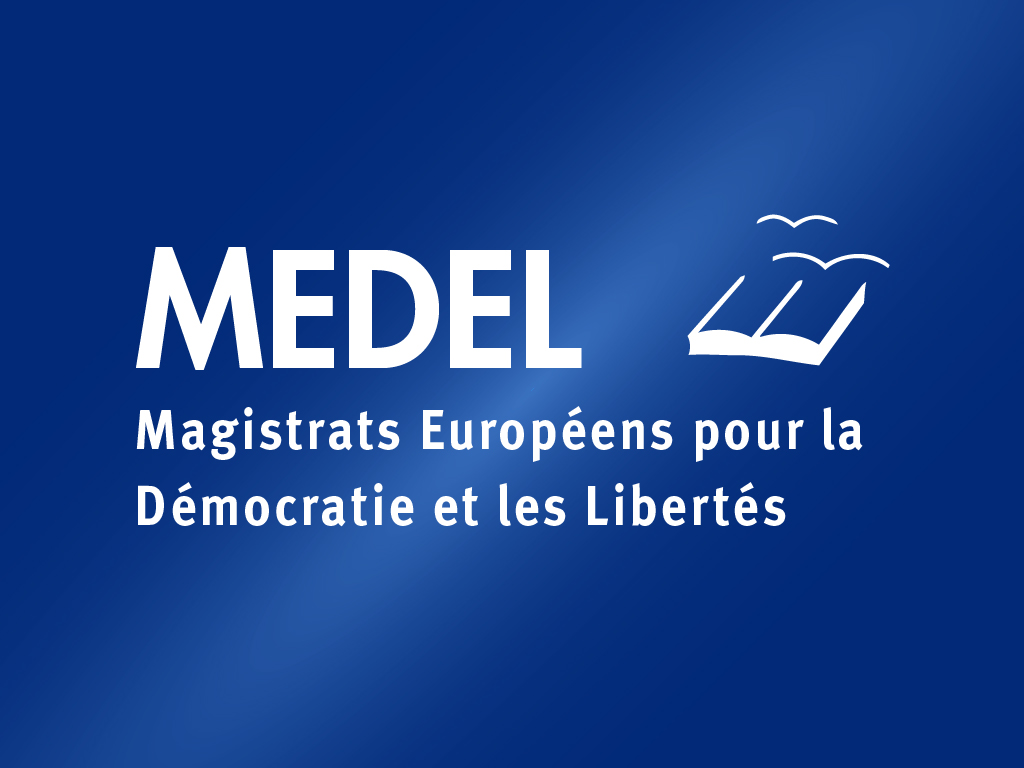On the 30th anniversary of MEDEL – Magistrats Européens pour la Démocratie et les Libertés – Solidarity, Dignity, Justice
In June 1985, a group of European magistrates – judges and prosecutors – founded MEDEL – Magistrats Européens pour la Démocratie et les Libertés, based on the strong belief that a united Europe could not be limited to free markets, but had to be based on fundamental rights and the Rule of Law in democratic societies.
Thirty years later, Europe has changed in ways that were then hardly imaginable – totalitarian regimes have fallen, democracy spread, borders opened and several new Member States joined the European Union.
However, protection and promotion of fundamental rights is still today, as it was then, an ongoing and essential struggle,as the progresses towards democratic administration did not always develop as they should.
1. For a Europe built on solidarity
In the preamble of the Charter of Fundamental Rights of the European Union, it is stated that “the Union is founded on the indivisible, universal values of human dignity, freedom, equality and solidarity” and that “enjoyment of these rights entails responsibilities and duties with regard to other persons, to the human community and to future generations”.
Solidarity must not be a meaningless word – European policies must comply with this principle enshrined in the Charter. Therefore, the European institutions and Governments should not impose on member States and populations antidemocratic policies that violate fundamental rights – especially social rights which were acquired after long struggle throughout the years – or policies which may lead to humiliation of whole nations by depriving them from their national wealth and from hope to build a decent life in their country.
European institutions should not promote salary reductions and cuts of social benefits to workers and should not hamper the future of young generations, while remaining silent when companies use tax havens – some of them within the EU – and bank and financial revenues are more protected than the European people.
Europe needs a “New Deal” which could take the form of a jurisdictional guarantee of fundamental social rights.
As MEDEL pointed out in 2012, in the Vilamoura Manifesto, the current problems of Europe did not arise because of the implementation of social rights – the economic crisis can not justify a reconsideration of social gains.
2. For a Europe based on the dignity of all
Europe must be a place of cultural diversity and freedom for all, regardless of their origin, nationality, ethnicity, religion or sexual orientation.
European policies must actively contribute to the establishment of fair and equal social conditions to all those who live and work in Europe, including immigrants who seek better life and peaceful future. European institutions should not continue to assist passively to the tragedy unfolding on its shores.
As MEDEL stated in 2013, the focus of the European immigration policy should not be exclusively security, but mainly humanitarian reasons, and that demands the adoption of clear and fair immigration rules at European level.
The fight for dignity is a fight for all humanity.
3. For a true Common Area of Justice
The respect for democracy and the Rule of Law and the protection and promotion of an independent Judiciary have always been among the main goals of MEDEL. Only with an independent Judicial power administering an accessible and effective Justice service the fundamental rights of citizens can be actively protected and ensured.
As MEDEL stressed in the appeal released in May 2014, the right to independent courts is also a fundamental right. The United Europe must be built based on citizens´ rights, applied by an independent Justice, and not upon market- led deregulation.
These fundamental rights and democratic freedoms will only be preserved by a strict separation between executive power and the judiciary. All measures affecting freedoms, including measures of surveillance and interception of data, should be controlled by judges.
Similarly, judges, not arbitrators, should be in charge of trials between companies and Member States of the European Union. The dratf of the Transatlantic Trade and Investment Partnership (TTIP), which establishes arbitration courts in those cases, would lead to overrule democratically approved and voted laws.
In an increasingly integrated Europe, the lack of common rules for the independence of the judiciary is a serious threat to the rights of citizens. The Judiciary in Europe must move forward – from cooperation to integration.
European magistrates – judges and prosecutors – are now used to interact directly among them, to apply directly European legislation, to follow the case-law of the European Courts in Luxembourg and Strasbourg.
Having achieved mutual trust and daily relationships, it is now the time for going beyond the scheme of cooperation among partners, aiming to a full integration of the Justice service in Europe.
Minimum standard rules for safeguarding the independence of the Judiciary, referring to aspects such as governance and accountability of the Judiciary, appointment of judges, role and autonomy of prosecutors, are essential, as well as common rules for access to justice, aiming at the highest level of judicial independence and fair access to justice.
Only that way, European citizens may be certain that their rights are protected in a true common area of Justice.
Athens, 23rd of May 2015
Documents on the situation of judiciary, by organisations members of MEDEL


